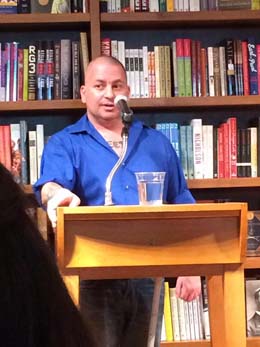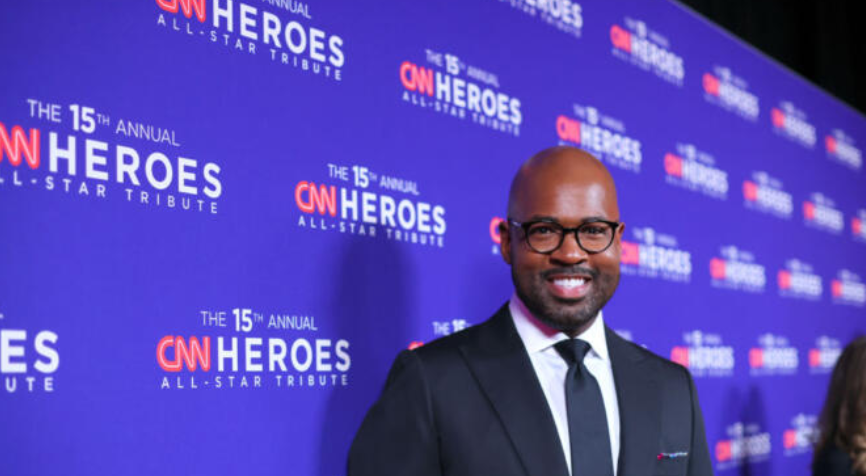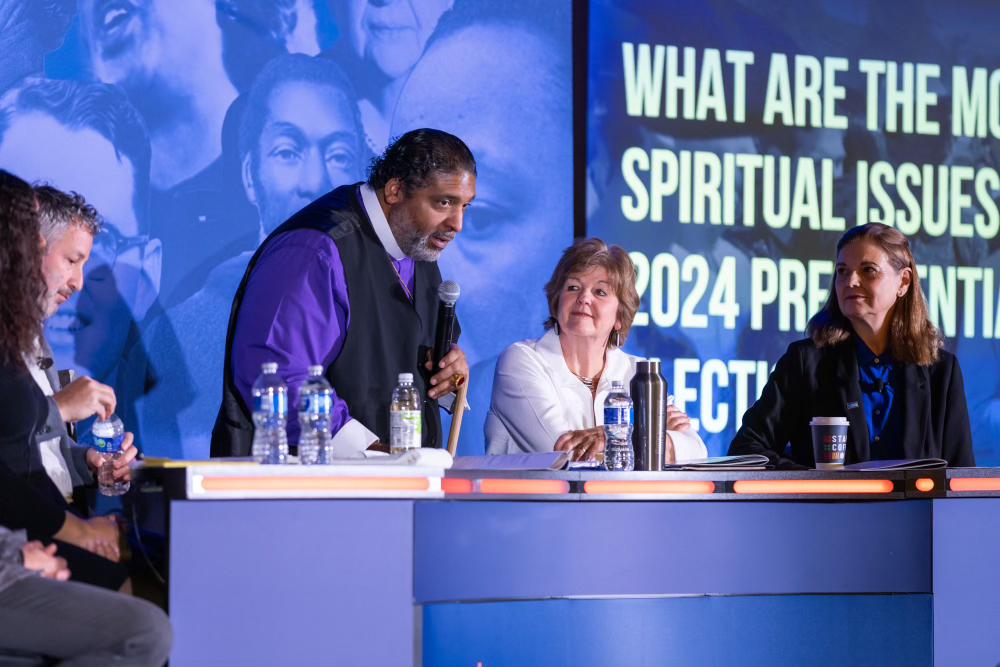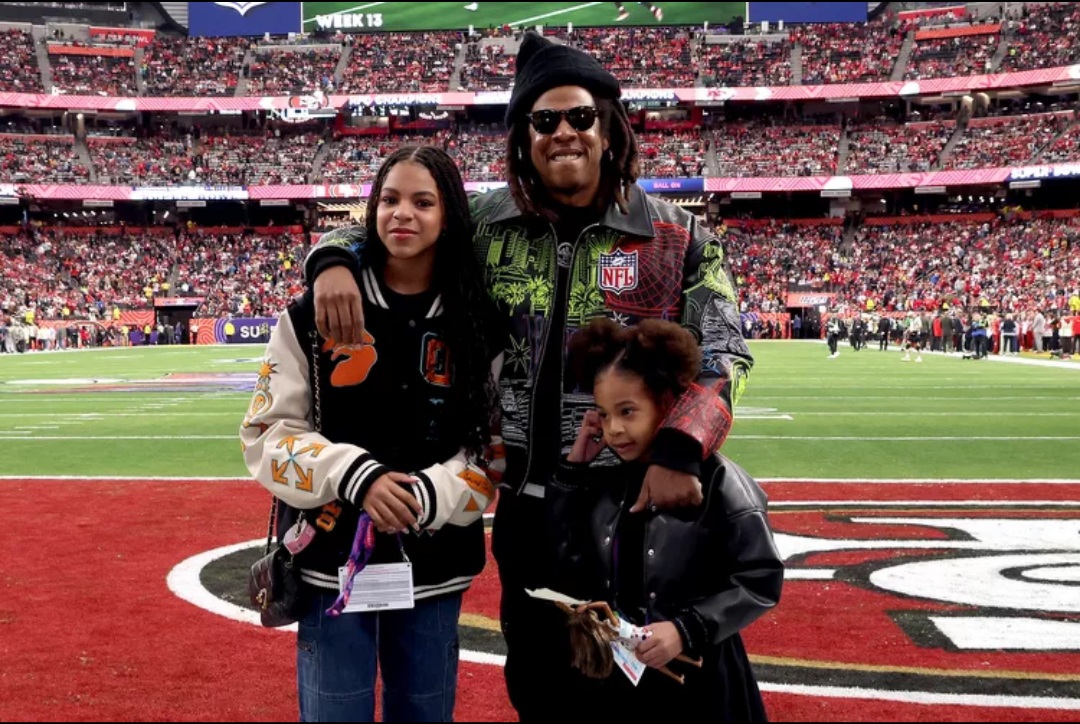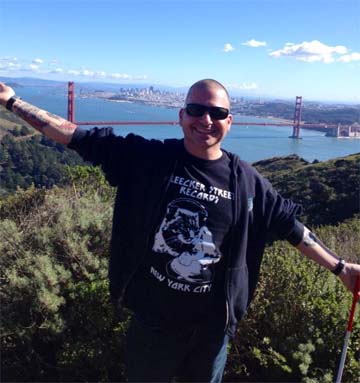
by Associate Editor Michael P. Coleman
If you’re like me, you’ll always remember your favorite teachers. Good ones were hard to come by in my suburban Detroit public school district, but I knew one when I found one. I still do, and that’s a trait that served me well as I turned the first page of “The Priority List: A Teacher’s Final Quest To Discover Life’s Greatest Lessons.” It’s a thoughtful, stirring memoir from a former teacher who, at 34 years old, was given two months to live if he didn’t seek treatment.
After reading the book I was left in awe of Menasche’s courage and willingness to fight not just for his life, but for more time with his students. Honestly, I also felt envious of those students — he still calls them his “kids” — who were blessed to interact with and learn from him in the classroom.
During our conversation, Menasche shared his reasons for telling his family of his diagnosis at their annual Thanksgiving gathering, his thoughts about when we all become adults (independent of age), and how he moved past the fear that he wouldn’t live long enough to experience “stuff”. He also shared his current feelings for his ex-wife and news of his current work with Voices Against Brain Cancer.
HUB: Let me start by saying that your book is on a very short list of mine that includes “The Secret” and “The Four Agreements”. It’s really exceptional, and I was changed by reading it.
MENASCHE: Thank you. I’m really honored by that.
HUB: My first question is related to your decision to disclose the details of your diagnosis to your family on Thanksgiving Day. I was reminded of LGBT friends telling me, for example, that you should never come out to family on a holiday, because of the way that type of announcement many times changes the complexion of a family gathering. Why did you decide to tell your family on Thanksgiving Day, and if you could do it again, would you have done it the same way?
MENASCHE: GREAT question. I’d just gotten the diagnosis the day before Thanksgiving that year, so it was in the front of my mind. It was obvious that there was something going on with me. In addition to my parents, my brother Jacques was there, and he’s always been my best friend, my confidant. Mostly I was telling him, but then when I noticed that everyone else was there, including my nephews and other family, I found myself taking on a persona of sorts. I wanted to communicate to my family that I was fine and that they shouldn’t worry about me. “I’m young, I’m healthy, I don’t have kids, I have insurance. I’ve got this.” It wasn’t a lie. It was just me elevating my sense of self and rising into it. I’ve always believed that we can be better than what we are. And in that moment, I didn’t want to be perceived as sick or weak or hysterical. I told myself I had to be cool and keep it together for them, for everybody, and ultimately for myself.
HUB: I was moved by you telling your brother “I’ve got this.” as you told him of the diagnosis. Were you confident of that, or were you talking yourself into it?
MENASCHE: It was a little bit of both. I’m not one to lie to myself, so when I said “I’ve got this”, in that moment, I believed it. But I have had to repeat it to myself, since then, as things got harder. I mean, the diagnosis was just the beginning of it. Since then, I’ve had a stroke that took away most of my vision and left me paralyzed. So I definitely have had to repeat that mantra since then. You can’t control the cards you’re dealt, but you can control the way you play them.
HUB: You wrote “I could live without knowing when my life would end. Doesn’t everyone have to do that?” Did you come to THAT realization during your journey, or did you kind of know that all along?
MENASCHE: I kinda knew that all along. I’ve always believed that we become adults at the precise moment when we discover our own mortality. You could be five years old, but the second you realize you’re going to die, childhood is over.
HUB: By your own definition, at what age did you become an adult?
MENASCHE: Probably when my grandmother died. That was the first death in my life. I was eleven years old, and it threw me. Watching it happen in the hospital…and it’s been horrifying to me to think that I might die that way, just withering away in a hospital bed. That was a big reason that I went on the trip. I had to quit all treatment, I came off of chemotherapy and everything else and travelled across the country, alone, in the winter, while newly blinded and crippled. A lot of people told me that they thought I was going to get myself killed, but that was really the one guarantee that I had. When you’re given a diagnosis like mine, you get a sense of fearlessness. What’s the worse that can happen? The inevitable? So I saw it as going out on my own terms, doing what I loved, what I wanted to do. Spending time with my students, seeing things that I’d never seen before. In a sense, I traded quantity of life for quality of life.
HUB: About one of your health challenges during your trip, you wrote “I think I tried not to think about it at all. It was incomprehensible. All I knew was that I wanted to get back to work, that my kids needed me and I needed them.” Did you need them more, or did they need you more?
MENASCHE: WOW. (Pause) I know for a fact how badly I needed them. I can only imagine that they needed me. And I think to paraphrase Neitzsche, “A person with a “why” to live can always figure out a “how”. For me, my kids were my “why”. They were the reason I suffered through chemo with the daily nausea, the radiation treatments and everything else. They were the light at the other end of it.
HUB: You included many passages in your book from your former students. Reading those sections told me that the David Menashce you’ve presented isn’t a creation who’s trying to sell a book. This is really who you are. You love your students, and they love you.
MENASCHE: Without a doubt. I don’t have children of my own, and teaching is the only career I’ve ever had, so pretty much everything I’ve ever put effort into came out in the classroom. All of my life experiences, everything I’d read…my mission became making my life worth living, and to pass on the lessons I’d learned along the way. I really believe that having something that you truly believe in, something that you’re willing to live or die for, is what carries us all through.
HUB: Did you begin your trip to see whether you’d made a difference, or did you begin the trip to try to recapture your lost memory…OR was it for a reason that I haven’t thought about yet?
MENASCHE: Well, yes it was both of those things AND to document my life’s journey. I’d already lost so much of my memory. I didn’t want to lose my memory of my students, so I set out to document it.
HUB: In addition to your “priority list” assignment for your students, you write about another assignment, “the spiral”, that according to you went viral on campus, with kids drawing spirals in their notebooks and all over campus. Did you face any animosity or jealousy from other faculty members that weren’t connecting with students the way you were?
MENASCHE: Well, in short, yes. But for every colleague I had who seemed resistant, I had many more who were supportive and wanted to work collaboratively with me. Many asked for advice about how I’d structured my lessons, and we worked together for the benefit of the kids. It was a wonderful collaboration.
HUB: You also wrote about the amazing love story between you and your wife. I was touched by reading about how you met, how you fell in love, shopping at JC Penney with her for her wedding dress, buying your first house together…without giving too much away, your relationship with her took a hit when you fell ill.
MENASCHE: With the diagnosis and the challenges that came with it and after it, I was no longer the guy that my wife had fallen for.
HUB: Are you still in touch with her?
MENASCHE: Really infrequently, and usually about business-related questions. We’re not in any way adversarial, but we’re not lovers or best friends like we used to be.
HUB: Are you still in love with her?
MENASCHE: [PAUSE] Well, I honestly don’t know who she is any more. I’m still in love with the woman I met in New York. There’s no question about that. I’m still in love with her. And that sense of love is something that I hope to always carry with me.
HUB: Shifting gears, I always have to ask authors this question. You wrote that “The Clockwork Orange” is your favorite novel. Why?
MENASCHE: Did I write that “The Clockwork Orange” is my favorite novel?
HUB: You most certainly did.
MENASCHE: Ugh. That’s regrettable. [Laughs] I’ll have to be more careful. It’s on my list, but it’s certainly not my favorite novel. It’s hard to say what’s my all time favorite. The most influential book in my life is “On The Road” by Jack Kerouac. The one I like teaching the most or working with is “Reservation Blues” by Sherman Alexie. I enjoyed being able to teach the perspective of a person of color that could transcend the experiences of the kids in my classroom. It helped many of my kids develop a love of reading.
HUB: You wrote “I was never afraid to die. I was afraid of living without a purpose.” Were you really never afraid to die, or was there a point where you said “I’m scared, and I don’t want to do this”?
MENASCHE: There was definitely one point. Somewhere along the line, I found out that my favorite band, Modest Mouse, had a new album coming out eight months later. According to my doctors, I wasn’t supposed to live that long. So it wasn’t fear of what was on the other side, it was fear that I was going to miss stuff! I ended up surviving and getting the album, and the balloon that’s on the cover of “The Priority List” is on that album. I have the balloon tattooed on my back, as a symbol of getting it, and putting it behind me. Ironically, the name of the album is “We Were Dead Before The Ship Ever Sank.”
HUB: Wow. I love that. What’s next for you? What are you doing, where are you going, and what can we look forward to from you?
MENASCHE: I’m serving as ambassador for a non-profit organization called Voices Against Brain Cancer (www.voicesagainstbraincancer.org). They have put together a community of patients, caregivers, and members of the medical community. It’s really the only organization out there that’s seriously trying to find a cure. They’re funding cutting edge research. So I’m working with them to try to make sure that one day no one has to go through this. There are a lot of things that are worse than death, and for a lot of people, being blind and crippled is on that list. Cancer doesn’t just kill you.
HUB: For you, what would have been worse than death?
MENASCHE: [PAUSE] Well, being forced to live disabled, purposeless, restless, and unhappy. And that’s what I’m fighting with more than cancer. So I can’t walk, I can’t do a lot of things any more. How can I get a smile out of this day? Maybe I’ll see this new art exhibit, or go listen to this new band play. It’s about coming to grips with my new normal. It’s picking up the pieces and moving the fuck on!
David Menasche’s “The Priority List: A Teacher’s Final Quest To Discover Life’s Greatest Lessons” is available at amazon.com. Visit Voices Against Brain Cancer
Michael P. Coleman is available at michaelpcoleman.com, or follow him on Twitter: @ColemanMichaelP
